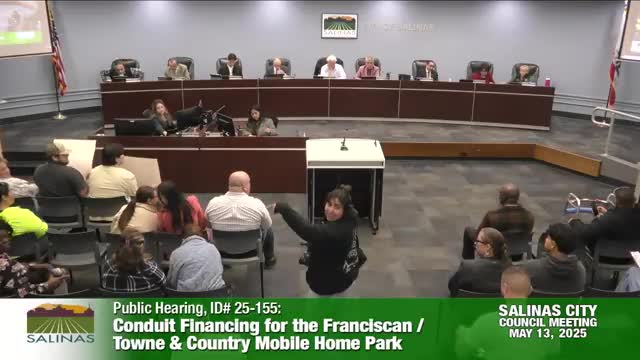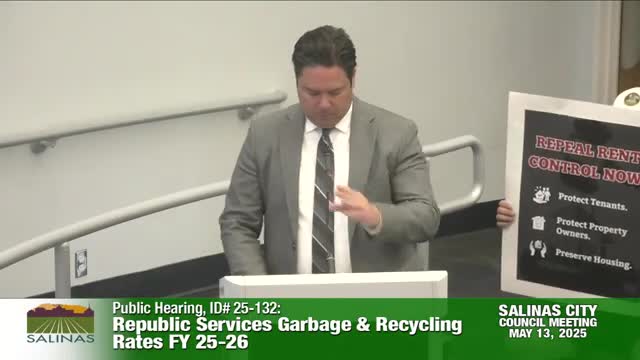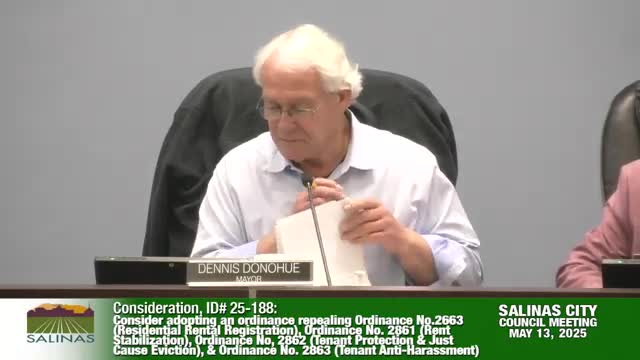Article not found
This article is no longer available. But don't worry—we've gathered other articles that discuss the same topic.

Council approves TEFRA hearing resolution for mobile‑home project; staff says city has no repayment obligation

Salinas approves Republic Services rate increases for 2025–26; council cites improved service compliance

